SUAREZ
Thursday, May 17, 2012
Exercise on Simple Present - Present Progressive
Principio del formulario
Exercise 1
Put the verbs into the correct tense (simple present or present progressive).
Quiet please! I (write) a test.
She usually walk (walk) to school.
But look! Today she is going (go) by bike.
Every Sunday we are going (go) to see my grandparents.
He often go (go) to the cinema.
We are playing (play) Monopoly at the moment.
The child seldom is crying (cry) .
*I am don´t doing (not / do) anything at the moment.
He watches (watch / he) The child seldom
2
Exercise 7
Complete the sentences. Use Simple Present and Present Progressive.
At noon I am visiting (visit) my friend Tanya.
We want (want) to have lunch together.
In the afternoon I am playing (play) squash with Emily.
In the evening, I am meeting (meet) Rob.
We are going (go) to the cinema.
The film is starting (start) at 8 pm.
3
Form
Write the verbs in Present Progressive.
jump - you You are jumping
bake - she She is baking
play - they They are playing
run - we We are running
Write the verbs in Simple Present, 3rd person singular.
have - he
eat - she eats
can - he cans
wash - she washes
4
Use
When to use which tense? Write Simple Present or Present Continuous.
For actions happening now, we use Present continuos.
The verbs 'be', 'have', 'like' and 'want' are normally only used inSimple present.
The signal word 'usually' indicates that we have to use Simple present.
The signal word 'now' indicates that we have to use Present continuos
Positive sentences
Complete the sentences. Use Simple Present or Present Progressive.
Brian cycle (cycle) 30 km every day.
Samantha is doing (do) her homework at the moment.
My parents are shopping (shop) right now.
He usually get up (get up) early in the morning.
Negative sentences
Complete the sentences. Use Simple Present or Present Progressive.
The baby (sleep / not) at the moment. The baby isn´t sleeping at the moment
I (read / not) a book now. I m´not reading a book now
We (go / not) to school on Sundays. We don´t go to school on Sundays
He (watch / not) the news every day. He doesn´t watch the news every day
questions
Complete the sentences. Use Simple Present or Present Progressive.
(they / play) computer games every day? Are they playing computer game every day?
(she / eat) dinner at the moment? Is she eating dinner at the moment?
Thursday, March 29, 2012
Simple Present Be
I am
You are
He is
She is
It is
We are
You are
They are
Contractions
I´m
You´re
He´s
She´s
It´s
We´re
You´re
They´re
Negative
I´m not
You aren´t
He isn´t
She isn´t
It isn´t
We aren´t
You aren´t
They aren´t
Interrogative
Am I...?
Are you...?
Is he...?
Is she...?
Is it...?
Are we...?
Are you...?
Are they...?
Simple Past Be
I was
You were
He was
She was
It was
We were
You were
They were
Negative
I was not
You were not
He was not
She was not
It was not
We were not
You were not
They were not
Interrogative
Was I...?
Were you...?
Was he...?
Was she...?
Was it...?
Were we...?
Were you...?
Were they...?
I am
You are
He is
She is
It is
We are
You are
They are
Contractions
I´m
You´re
He´s
She´s
It´s
We´re
You´re
They´re
Negative
I´m not
You aren´t
He isn´t
She isn´t
It isn´t
We aren´t
You aren´t
They aren´t
Interrogative
Am I...?
Are you...?
Is he...?
Is she...?
Is it...?
Are we...?
Are you...?
Are they...?
Simple Past Be
I was
You were
He was
She was
It was
We were
You were
They were
Negative
I was not
You were not
He was not
She was not
It was not
We were not
You were not
They were not
Interrogative
Was I...?
Were you...?
Was he...?
Was she...?
Was it...?
Were we...?
Were you...?
Were they...?
Tuesday, March 27, 2012
PICTIONARY.
season.

saute.

roast.
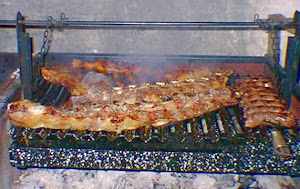
regrigerate.

puree.
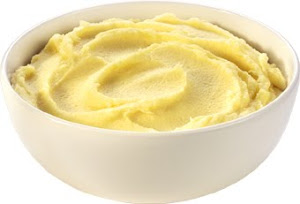
pour.

poach.
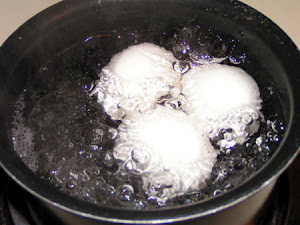
peel.
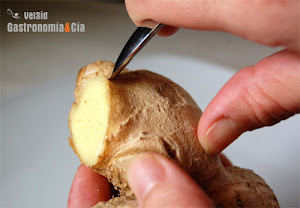
parboil.

mix.
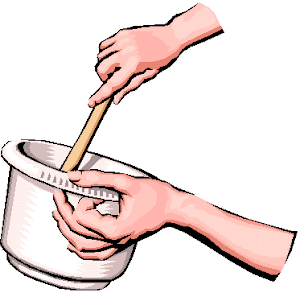
mince.
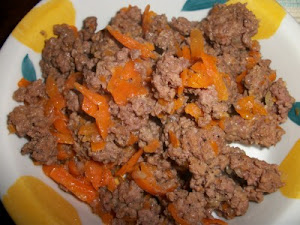
melt.

mash.

marinate.
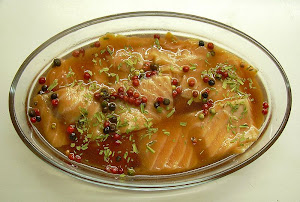
knead.
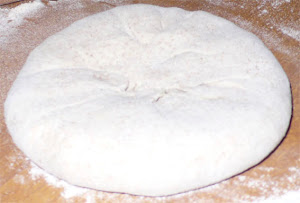
grind.
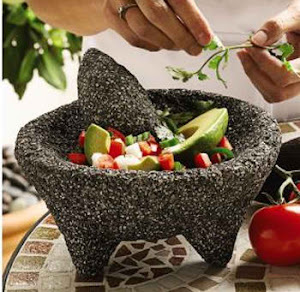
grease.

grate.
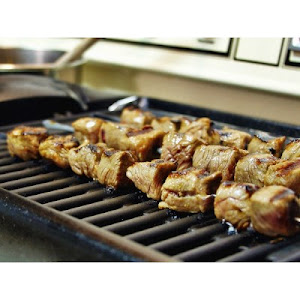
freeze.

dreep fry.
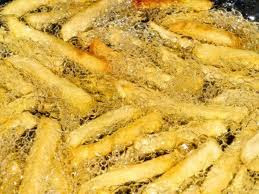
dice.

cover.

cook.

coat.

chop.

brown.

broil.

bread.

braise.
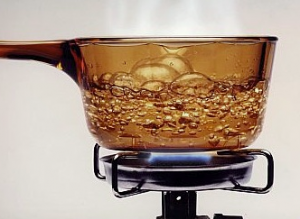
boil.
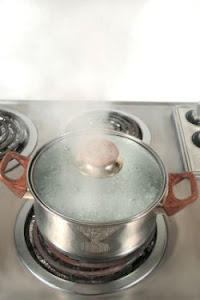
blend.
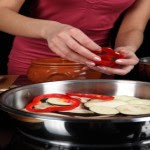
barbecue.

bake.

add.

Wednesday, March 21, 2012
SIMPLE PRESENT - PRESENT CONTINUOUS.
Count nouns.
- can be singular and plural.
- we use many.
- we use are. (every thing that you can count).
Example:
- kilogram-pl- kilograms.
- how many kilograms of strawberries do we need?.
- are there any watermelons in the box?.
yes, there are.
Non-count nouns.
- only singular.
- we use much.
- we use is.
- can be singular and plural.
- we use many.
- we use are. (every thing that you can count).
Example:
- kilogram-pl- kilograms.
- how many kilograms of strawberries do we need?.
- are there any watermelons in the box?.
yes, there are.
Non-count nouns.
- only singular.
- we use much.
- we use is.
Examples:
- milk- singular.
- how much sugar do we have?.
- there is white cheese in the evidgal
- there is white cheese in the evidgal.
is there any cheese in your house?.
Containers and quantities.
- can.
- box.
- bottle.
- bag.
- loaf.
Simple present.
- routine / habit / repeated action.
- if you have adverbs of frequency.
(always, never, sometimes).
- if you have "every"
day
month
tuesday
- use do / does.
- use don`t / doesn`t.
Important: * like, need, want, have.
* 3rd person singular + s / es.
he / she / it.
- routine / habit / repeated action.
- if you have adverbs of frequency.
(always, never, sometimes).
- if you have "every"
day
month
tuesday
- use do / does.
- use don`t / doesn`t.
Important: * like, need, want, have.
* 3rd person singular + s / es.
he / she / it.
Present continuous.
- action is now.
- at this moment.
- at the moments of speaking.
- use am / is / are.---- am not isn`t, aren´t
- use verb + ing.
- we can use it for the future.
don`t say: we cook dinner now.
don´t say: I am cooking dinner every day.
- at this moment.
- at the moments of speaking.
- use am / is / are.---- am not isn`t, aren´t
- use verb + ing.
- we can use it for the future.
don`t say: we cook dinner now.
don´t say: I am cooking dinner every day.
Wednesday, March 14, 2012
DICTIONARY.
A LEMON.
A LIME.
AN ORANGE.
GRAPES.
A PINEAPPLE.
BANANAS.
A PEAR.
APRICOTS.
PEACHES.
STRAWBERRIES.
RASPBERRIES.
A HONEYDEW MELON.
AN AVOCADO.
A PAPAYA.
A MANGO.
A KIWI.
A WATERMELON.
RAISINS.
FIGS.
PRUNES.
DATES.
AN EGG.
AN ONION.
A TOMATO.
A POTATO.
A PEPPER.
PEAS.
CARROTS.
CABBAGE.
BROCCOLI.
CAULIFLOWER.
LEEKS.
CUCUMBERS.
BRUSSELS SPROUTS.
CORN.
LETTUCE.
ASPARAGUS.
AN EGGPLANT.
BEANS.
CELERY.
GARLIC.
A TANGERINE.
A GRAPEFRUIT.
Subscribe to:
Posts (Atom)
